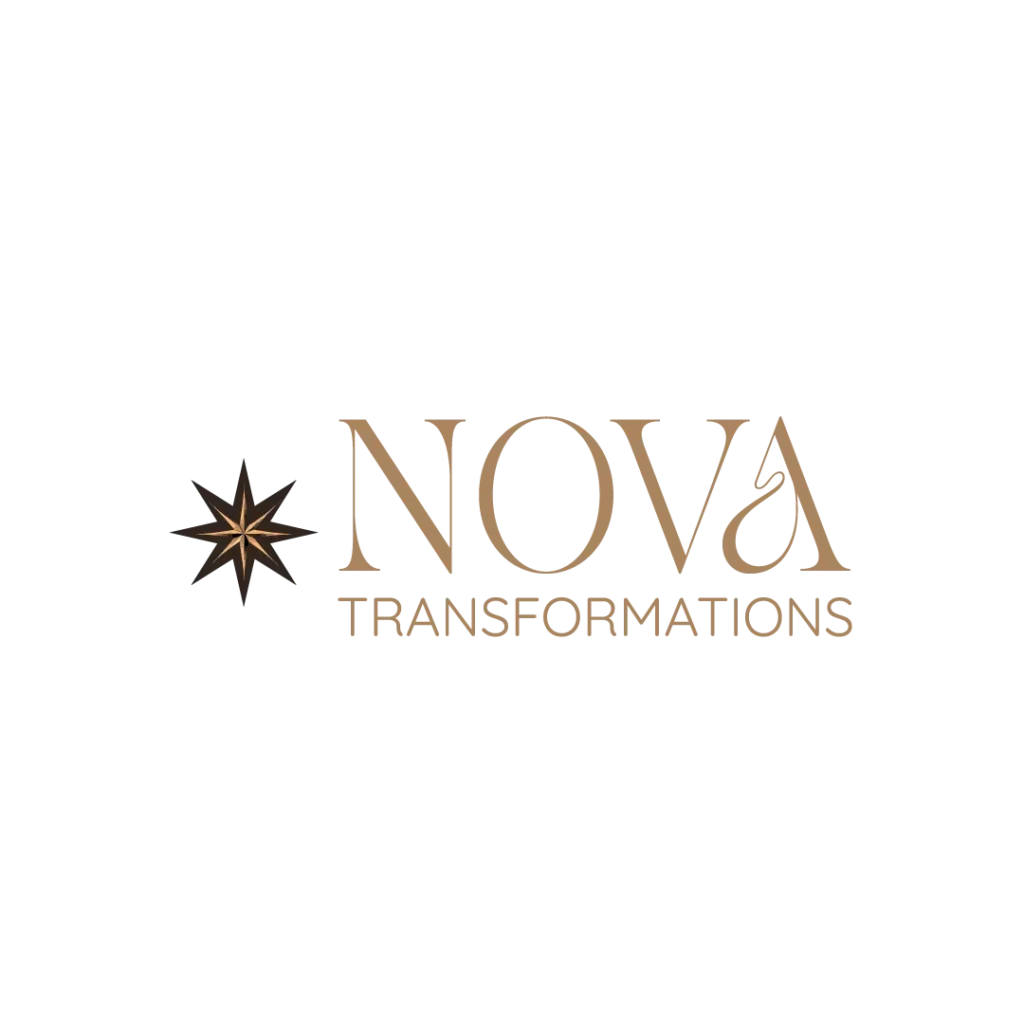Nova Transformations: Drug & Alcohol Treatment
Comprehensive Addiction Services
At Nova Transformations, you can access a full spectrum of addiction services tailored to meet the needs of individuals struggling with drug and alcohol dependency. Their programs focus on providing personalized care, ensuring that each client receives the attention they need for effective recovery. Services range from detoxification to outpatient rehabilitation and aftercare support.
Nova Transformations recognizes the complexities of addiction and employs a holistic approach to treatment, addressing not only the substance use but also the underlying psychological and emotional factors. By incorporating a variety of therapies and support systems, the facility aims to set you or your loved one on a path towards lasting recovery.
| Service Type | Description |
|---|---|
| Detoxification | Safe withdrawal management under medical supervision. |
| Outpatient Rehabilitation | Flexible treatment programs allowing for participation in daily life. |
| Aftercare Support | Ongoing support and resources to maintain sobriety. |
Evidence-Based Treatment Approach
Nova Transformations prioritizes an evidence-based approach in its treatment methodologies. This ensures the integration of scientifically validated practices that have proven effective in helping individuals overcome addiction. A range of therapeutic interventions including Cognitive Behavioral Therapy (CBT) and Motivational Enhancement Therapy (MET) are employed to help address cannabis dependence and other substance use disorders. These interventions focus on changing harmful behaviors and enhancing motivation for change.
Research has shown that CBT is particularly effective for those suffering from Cannabis Use Disorder (CUD), as it helps individuals understand their behaviors and develop strategies to overcome addiction. Additionally, studies indicate that combining behavioral therapies with pharmacotherapy yields better outcomes for treating addiction.
Nova Transformations also offers specialties aimed at specific demographics and needs, such as alcohol addiction treatment, opioid addiction programs, and dual diagnosis mental health and addiction. With a comprehensive service offering, you are not just receiving treatment for addiction but also guidance towards a healthier lifestyle post-recovery.
Cannabis Dependence & Therapy
Medication Options
When considering cannabis dependence therapy, there are several medication options that have shown promise in treating cannabis use disorder. As of now, buspirone is the only medication demonstrated to have efficacy in a controlled clinical trial for cannabis dependence (PubMed Central). Other medications like gabapentin, N-acetylcysteine (NAC), naltrexone, varenicline, nabilone, and cannabidiol (CBD) may clinically assist in reducing cannabis use, managing withdrawal symptoms, and helping maintain abstinence (Psychiatric Times).
N-acetylcysteine (NAC) has been highlighted for its effectiveness. Research indicates that NAC can lead to reductions in self-reported cannabis use and cravings, significantly increasing the odds of achieving negative urine cannabinoid tests when paired with brief counseling and contingency management for promoting abstinence.
| Medication | Purpose |
|---|---|
| Buspirone | Efficacy shown in clinical trials |
| N-acetylcysteine | Reduces cravings, manages withdrawal |
| Gabapentin | Potential to aid in treatment |
| Naltrexone | May help reduce cannabis use |
| Cannabidiol (CBD) | Emerging evidence for effectiveness |
Effectiveness of Behavioral Interventions
Behavioral interventions play a significant role in cannabis dependence therapy. Various methods, including Cognitive Behavioral Therapy (CBT), Motivational Enhancement Therapy (MET), and contingency management (CM), have shown effectiveness in treating cannabis use disorder. Although there are no FDA-approved medications specifically for this issue, the evidence supports the use of behavioral modalities.
Research has established that a combination of MET, CBT, and CM provides optimal benefits for outpatient treatment of those with marijuana dependence. This integrated approach has been linked to higher rates of abstinence and longer periods free from marijuana use.
| Behavioral Intervention | Effectiveness |
|---|---|
| Cognitive Behavioral Therapy (CBT) | Helps address cognitive patterns relating to use |
| Motivational Enhancement Therapy (MET) | Increases motivation to change behavior |
| Contingency Management (CM) | Reinforces positive behaviors and abstinence |
Choosing Nova Transformations for cannabis dependence therapy means accessing comprehensive treatment options that include both medication and behavioral interventions tailored to your specific needs.
Understanding Cannabis Use Disorder
Prevalence & Symptoms
Cannabis Use Disorder (CUD) can affect a significant portion of individuals who use cannabis. Chronic, heavy use of cannabis products containing THC is linked to the development of this disorder. According to the National Institute on Drug Abuse, studies estimate that between 22% and 30% of cannabis users may have CUD. Symptoms of this condition include:
- Increased tolerance to cannabis
- Withdrawal symptoms upon cessation
- Unsuccessful attempts to cut down or control use
- Continued use despite negative effects on personal relationships and responsibilities
The reduced public perception of risks related to cannabis use can contribute to diminished awareness of these symptoms and their implications.
Impacts on Daily Functioning
The effects of Cannabis Use Disorder extend beyond the individual, influencing various aspects of daily life. Heavy cannabis use can lead to neurocognitive impairment, psychiatric comorbidities, and medical issues. Individuals with CUD may experience disruptions in work or educational settings, impacting their overall productivity and success. Some specific impacts include:
| Area of Impact | Description |
|---|---|
| Employment | Difficulty maintaining job performance or attendance |
| Education | Challenges in focusing and completing academic tasks |
| Relationships | Strain on personal relationships due to neglect or conflict |
| Mental Health | Increased risk of anxiety, depression, and other mood disorders |
Individuals facing these challenges often feel ambivalent about seeking treatment and may have a history of multiple unsuccessful attempts to quit using cannabis (Psychiatric Times). Treatment strategies such as cognitive behavioral therapy can help in reshaping coping strategies, ultimately reducing cannabis dependence and supporting a healthier lifestyle.
If you or a loved one is struggling with cannabis use disorder, exploring options such as Nova Transformations can be a vital step towards recovery.
Treatment Strategies
Cognitive Behavioral Therapy (CBT)
Cognitive Behavioral Therapy (CBT) is a widely recognized approach for treating cannabis dependence. This therapy focuses on addressing cognitive and behavioral patterns that contribute to substance use. Through CBT, you can learn techniques to manage impulses, avoid triggers, and reduce or eliminate cannabis use. Studies indicate that CBT is effective as both a standalone treatment and as part of comprehensive strategies, particularly for substance use disorders.
CBT helps you identify negative thought patterns and replace them with positive responses. This process can foster a deeper understanding of the underlying issues related to cannabis use and encourage healthier coping mechanisms. CBT demonstrates proven efficacy in large-scale trials, making it a suitable option for those seeking to overcome cannabis dependence.
| Key Benefits of CBT | Description |
|---|---|
| Addresses Thought Patterns | Helps identify and modify unhelpful thoughts related to cannabis use. |
| Behavior Modification | Encourages behavioral changes that support recovery and prevent relapse. |
| Coping Strategies | Equips you with skills to manage cravings and impulses. |
Motivational Enhancement Therapy (MET)
Motivational Enhancement Therapy (MET) is another effective treatment option for those dealing with cannabis use disorder. This client-centered approach aims to enhance your motivation to change by addressing any ambivalence you might feel towards altering your behavior. MET is commonly used in conjunction with other treatment methods, such as CBT, to create a comprehensive therapeutic plan (NCBI).
MET involves several sessions focused on empathy, reflective listening, and affirming your ability to change. By helping you build your motivation to quit or reduce cannabis use, MET fosters a supportive environment where you can explore your goals and the barriers to achieving them.
| Target Areas of MET | Description |
|---|---|
| Ambivalence | Identifies conflicting feelings about substance use and change. |
| Goal Setting | Encourages you to set realistic and attainable goals for recovery. |
| Self-Efficacy | Supports the belief that change is possible and achievable. |
Combining CBT and MET offers a robust strategy for cannabis dependence therapy, enhancing the likelihood of successful recovery. By creating a collaborative treatment plan, you can address cannabis use effectively and work toward a healthier, substance-free lifestyle. For more information about innovative treatments and support options, explore our extensive range of services at Nova Transformations.
Promising Medication Options
When considering cannabis dependence therapy, incorporating medication can enhance the effectiveness of treatment. Two noteworthy options are N-acetylcysteine (NAC) and the potential for gabapentin and naltrexone. Each offers unique benefits and may be utilized alongside therapeutic interventions like cognitive-behavioral therapy (CBT) and motivational enhancement therapy (MET).
N-acetylcysteine (NAC)
N-acetylcysteine (NAC) has emerged as a promising medication for treating cannabis use disorders. Research indicates that NAC can lead to reductions in self-reported cannabis use and cravings. In fact, when NAC is coupled with brief counseling and contingency management (CM) strategies, patients show more than twice the odds of achieving negative urine cannabinoid tests during treatment (NCBI).
NAC’s effectiveness stems from its ability to modulate glutamate levels in the brain, which may play a role in addiction pathways. This modulation helps reduce withdrawal symptoms and cravings, making it a valuable option in cannabis dependence therapy.
| Outcome | Effectiveness with NAC |
|---|---|
| Reduction in cannabis use | Significant |
| Reduction in cravings | Substantial |
| Negative urine tests | Over 2x odds |
Gabapentin & Naltrexone Potential
Gabapentin and naltrexone are also being explored as potential medication options for cannabis dependence. These medications, traditionally used for other disorders, have shown promise in pharmacotherapy trials for cannabis use disorder (CUD). They may be particularly effective when combined with behavioral treatments like CBT, MET, or CM, which are designed to promote abstinence and reduce substance use.
Gabapentin, an anticonvulsant, may help manage withdrawal symptoms and reduce relapse risk, while naltrexone, an opioid receptor antagonist, could potentially diminish the rewarding effects associated with cannabis use.
| Medication | Potential Benefit |
|---|---|
| Gabapentin | Reduction of withdrawal symptoms |
| Naltrexone | Diminished rewarding effects |
By integrating NAC, gabapentin, and naltrexone with comprehensive therapies, you will be better positioned for successful recovery. For further insight into treatment modalities in cannabis dependence therapy, explore our resources on cognitive-behavioral therapy addiction and motivational enhancement therapy. Making informed decisions will empower you or your loved ones to achieve and maintain long-term recovery.
Addressing Cannabis Dependence
Importance of Early Intervention
Recognizing the signs of cannabis dependence early is vital for effective treatment. Chronic, heavy use of cannabis products containing THC can lead to cannabis use disorder (CUD), affecting an estimated 22% to 30% of users (National Institute on Drug Abuse). Early intervention can significantly improve outcomes, as individuals who seek help sooner generally experience better transitional support and enhanced chances of recovery.
Here’s a brief overview of how early intervention can impact recovery:
| Factor | Immediate Benefits | Long-term Benefits |
|---|---|---|
| Support Systems | Establishes strong support networks early on | Sustains motivation and accountability throughout recovery |
| Treatment Engagement | Engages individuals before severe symptoms develop | Increases likelihood of long-term recovery |
| Cost-Effectiveness | Prevents escalation of addiction and related health issues | Reduces overall health costs and improves productivity |
Quick action can create a path towards healing, reducing the risk of negative emotional and psychological consequences associated with prolonged misuse, such as neurocognitive impairment and disruption in daily functioning.
Holistic Approach to Recovery
A holistic approach to recovery integrates various therapeutic avenues, addressing not only the symptoms of cannabis dependence but also the underlying emotional and psychological issues. Combining multiple therapeutic modalities ensures that you or your loved one receives comprehensive care that takes into account the various aspects of one’s well-being.
The holistic strategies ideal for cannabis dependence treatment might include:
- Behavioral Therapies: Techniques like Cognitive Behavioral Therapy (CBT) and Motivational Enhancement Therapy focus on behavior modification and motivation to change, targeting ambivalence towards treatment. Research indicates that these approaches can effectively reduce consumption and promote sustained abstinence from cannabis (NCBI PMC).
- Supportive Therapies: Family-based treatments or community support groups can provide invaluable support as individuals navigate their recovery journey.
- Mindfulness and Wellness Strategies: Incorporating mindfulness rehab techniques alongside nutritional counseling and physical activities such as yoga can cultivate an overall sense of well-being, enhancing resilience against urges to use cannabis.
Selecting a facility like Nova Transformations for cannabis dependence therapy ensures that you or your loved one will benefit from a well-rounded approach to recovery, laying a solid foundation for lifelong health and stability.








